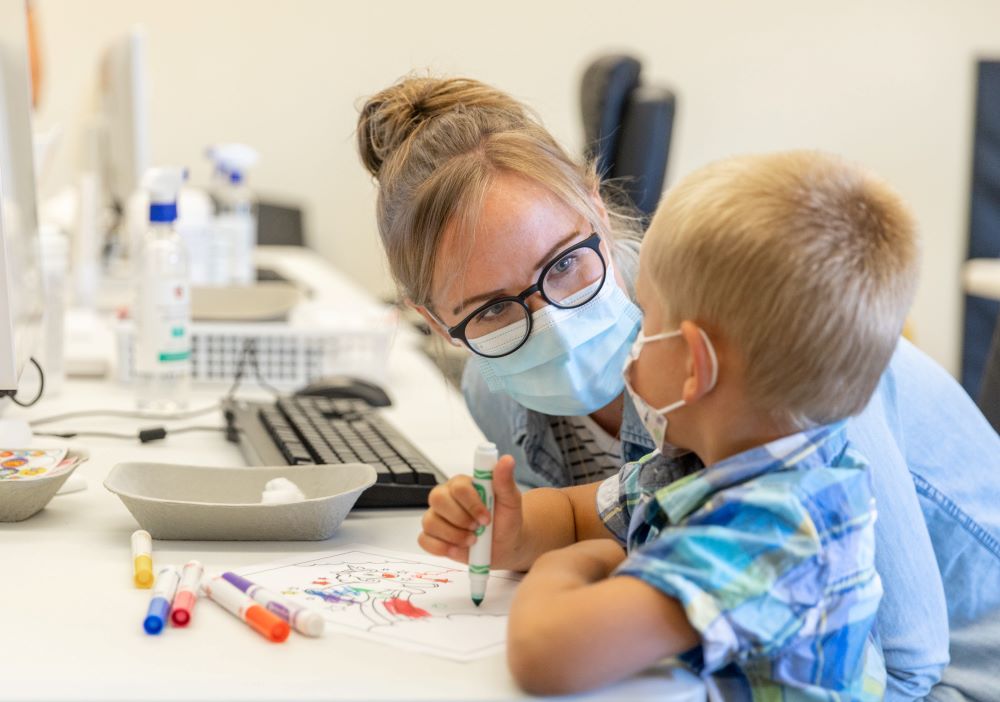As Dr. Bonnie Henry likes to say, we are all tired of COVID. But the fact is that even if B.C.’s provincial health officer ignores this virus, the virus won’t ignore us.
We at Protect Our Province BC have been saying this for some time now: there is functionally no public health in British Columbia. As if to highlight the point, B.C. recently dropped the public health order requiring health-care workers to wear masks around sick patients, and vice versa.
Vulnerable people seek medical care in hospitals. Now, when pregnant women, babies, seniors, patients undergoing chemotherapy or those who’ve had an organ transplant enter a hospital, they’ll run a high risk of leaving with COVID-19 as well. For some of these people, the newly acquired infection will be terminal.
In addition, the province has also removed protections in long-term care homes, despite acknowledging age as the biggest risk factor for severe acute outcomes of COVID-19. To remove protections now in long-term care helps the virus; it does not help seniors.
B.C.’s Human Rights Commissioner Kasari Govender has expressed concern about the removal of mask mandates in health-care settings.
“This week’s removal of masking directives in health-care settings does not uphold a human rights centered approach to public health,” Govender wrote on April 12. “If there is one space that all vulnerable people should be able to rely on to prioritize their safety, it is in health-care settings, including long-term care facilities.”
For health-care workers, a betrayal
The removal of mask protections in health-care settings sends the message that the health and well-being of British Columbians is not a priority for the province. The removal of these measures also betrays health-care workers, because they too will be infected and be unable to care for their patients during recovery. As it stands, workers in long-term care homes and acute health care settings have the highest number of COVID-related claims with WorkSafeBC.
To make matters worse, you’re more likely to catch COVID in British Columbia than about anywhere else in Canada right now. Currently at least one in 17 British Columbians is infected.
If COVID were “mild” we might not care so much about these rampant infection rates, but contrary to what the provincial health messaging would have you think, Omicron and its sub-variants are anything but. We have had more deaths in B.C. from Omicron in 2022 than in the previous two years combined.
We have had more children admitted to hospital and to critical care from Omicron than in the previous two years.
It’s not ‘mild’
SARS-CoV-2 is not a respiratory virus. The acute infection may begin in your lungs, but that’s just the beginning. SARS-CoV-2 is a systemic infection, meaning the whole body is affected. SARS-CoV-2 is a whole-body vascular inflammatory virus that will make any pre-existing condition that people have worse. It will also give people new chronic diseases, including heart failure, high blood pressure, heart attacks, strokes, blood clots, kidney disease, diabetes and much more.
A virus that chronically disables 10 per cent of the population is not “mild.” Ten per cent of those who get infected — and this includes many young and formerly healthy people — will develop a disabling post-viral syndrome called long COVID. Being vaccinated does not fully protect you against this risk.
Despite what public health officials say about “hybrid immunity” (referring to individuals with at least two doses of mRNA vaccine and experience with a COVID infection), every single COVID infection puts you at even greater risk of long COVID and other complications. Each repeat infection carries additional risk of acute or severe outcomes over the long term.
Even if you escape long COVID, evidence is mounting that the virus weakens the immune system. This leads to people being sick all the time and fighting one infection after another.
We are clearly still in an ongoing pandemic. By removing mask protections in B.C.’s health-care settings and long-term care homes, the province is laying out a red carpet for infection.
If you are tired of delayed and cancelled health-care services, you should brace yourselves, because removing safety protections in hospitals will only make health-care service delays worse. More health-care workers are going to get sick, particularly in long-term care facilities where workers are forbidden by their employer to wear respirators. The health-care nurse-to-patient ratio, the B.C. government just promised, will be unattainable.
Please phone or write to your MLA. Add your voice to ours in demanding that the B.C. provincial health officer bring back mask protections in health care and act to protect our elders in their long-term care homes.
“Being kind” calls for actions, not just empty words. ![]()
Read more: Coronavirus, BC Politics















Tyee Commenting Guidelines
Comments that violate guidelines risk being deleted, and violations may result in a temporary or permanent user ban. Maintain the spirit of good conversation to stay in the discussion and be patient with moderators. Comments are reviewed regularly but not in real time.
Do:
Do not: